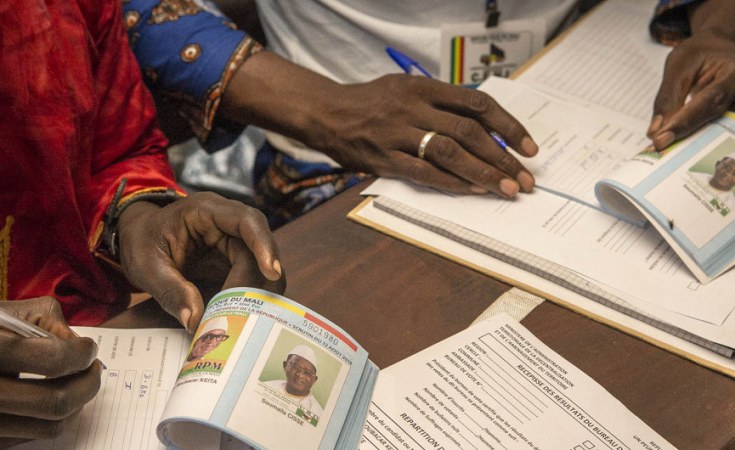The results of the referendum in Mali are due this week. For the ruling junta, the referendum paves the way for new elections in 2024. However, many have described it as a "catastrophic failure".
The results were expected within 72 hours of the closing of polling stations, so the resutls are due some time this week
But the military leader, Colonel Assimi Goita, 40, has already said the vote will pave the way for a new Mali.
"I am convinced this referendum will pave the way for a new Mali, a strong Mali, an efficient Mali," Goita said, "a Mali in the service of the well-being of its population."
While everyone waits for the final results, observers report that the participation will not be higher than 28 percent.
Key, long-awaited referendum
Polling stations opened at 8am GMT last Sunday, with green ballots for the "yes" vote and red for "no".
The vote was the first organised in the western African landlocked country by the military since it seized power in August 2020 in a coup. The junta then overthrew Mali's last elected president, Ibrahim Boubacar Keita.
The vote is considered both nationally and internationally as a stepping stone towards a return to civilian rule.
General elections should be scheduled for March 2024 under commitments made by the military.
However less than nine months before the deadline, the future role of the military is still not clear, nor is the role of junta leader Colonel Assimi Goita.
Polling stations were supposed to be open in the whole of Mali, but many observers and voters reported that electors were unable to vote in the centre and in the north of the country, especially in and around the Tuareg city of Kidal.
The Tuareg rebels from Northern Mali also called on their supporters to reject or boycott the referendum, and claim that they have not been included in the redaction of the constitution.
Some newspapers after #Mali's constitutional referendum on 18 June - the first election since the army seized power in Aug 2020: low turnout (as has often been the case with elections in the country) and no voting in the stronghold of former rebels, Kidal. pic.twitter.com/s4EtMsxCuT-- Beverly Ochieng (@BeverlyOchieng) June 19, 2023
Despite all these dysfunctions, most political analysts have been predicting a positive outcome for the junta and its new constitution.


